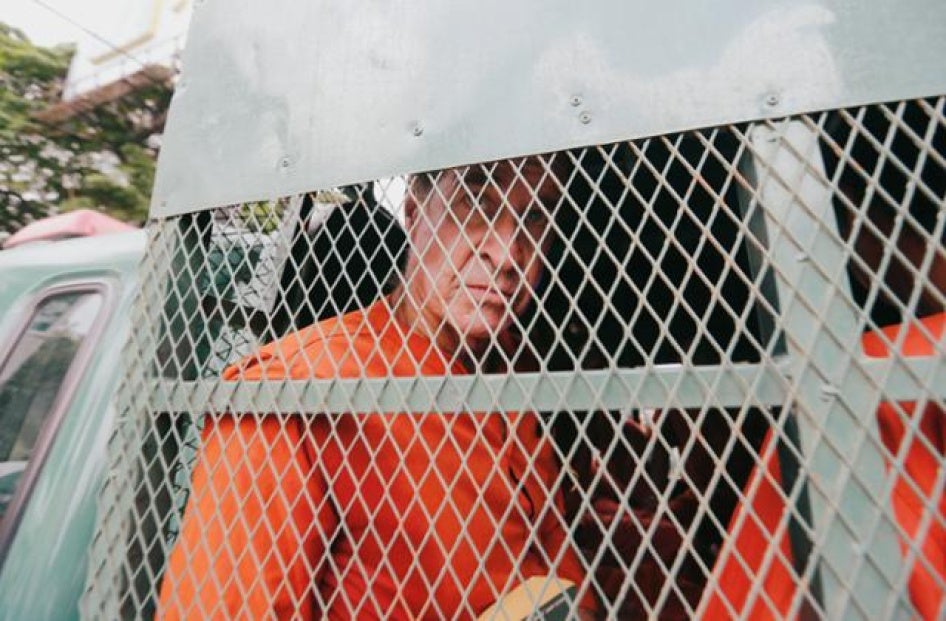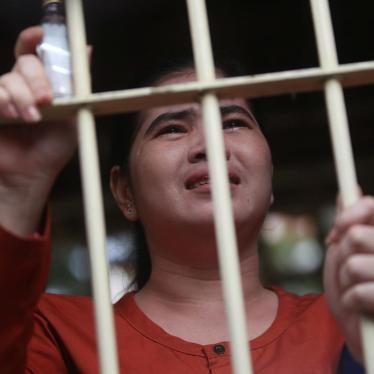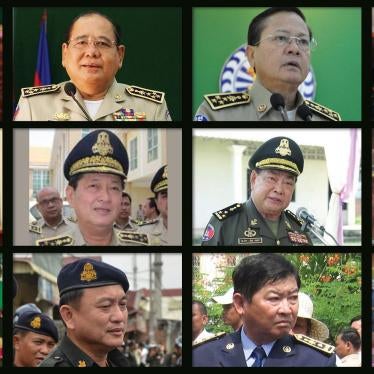Dear Foreign Minister,
Human Rights Watch writes to urge you to press the Cambodian government to quash the conviction and immediately release imprisoned Australian journalist and filmmaker James Ricketson. We ask you to publicly denounce his trial and six-year sentence for what it is: farcical legal proceedings on bogus espionage charges. The muted response thus far by the Australian government to Ricketson’s conviction follows what had been more than a year of wholly ineffectual “quiet diplomacy” pursued by previous Foreign Minister Julie Bishop.
Australia’s “quietly, softly” approach to human rights diplomacy in Southeast Asia seems to have made it easier for Cambodia’s government to ignore “soft messages” from Australia and confidently jail an Australian citizen without a credible basis for 14 months without fear of repercussions. During the seven-day criminal trial that ended on August 31, no evidence was produced that demonstrated Ricketson had committed espionage.
Australia has yet to condemn a prosecution widely seen as a politically motivated attempt by the Cambodian government of Prime Minister Hun Sen to silence independent journalists in the country ahead of the discredited election on July 29.
On June 3, 2017, police arrested Ricketson in Phnom Penh without informing him of the reasons for his arrest. He was held at the immigration police headquarters without charge for four nights, beyond the legal period of 72 hours. On June 9, an investigating judge charged him with espionage and sent him to pre-trial detention.
A day before his arrest, Ricketson had flown a drone without a permit over an opposition rally in the capital. However, the case quickly surpassed any legal violation from the use of a drone. Ricketson had long been vocal about corruption and poverty in Cambodia, and the Cambodian government’s involvement. He also had produced several documentaries about the main political opposition party, the Cambodian National Rescue Party (CNRP), and was in contact with its leadership.
On November 16, 2017, the Supreme Court arbitrarily dissolved the CNRP, effectively turning the upcoming election into a one-party contest. That court judgment mentioned Ricketson as one of the key players in fomenting a so-called “color revolution,” which the government had alleged without credible evidence was led by the CNRP, supported by civil society, and financially assisted by foreign governments.
Under Cambodian criminal law, espionage is defined as the collection by a foreigner of information that undermines the national defense. The crime requires the suspect to have obtained such information with the intent to share it with another country. The court never made such a finding, prompting Ricketson to ask during the proceedings: “Please, tell me, which county was I spying for?”
The prosecution’s entire case rested on three pieces of evidence from Ricketson’s emails that demonstrated no crime, let alone espionage: a letter to then-Prime Minister Malcolm Turnbull critical of the Cambodian government, an email to former Cambodian opposition leader Sam Rainsy regarding an arrest warrant and another containing detail of Hun Sen’s personal bodyguard unit, and a dozen photographs of riot police at an opposition protest in Freedom Park in Phnom Penh. Given the government’s control over the courts in Cambodia, particularly in political cases, a conviction was a foregone conclusion.
Hours after the verdict, Australia’s new Prime Minister Scott Morrison told the media that it was best “to deal with these things calmly, directly and in a way that best assists the citizen,” but said nothing about the charges or the conduct of the proceedings.
That day, you “acknowledged” the conviction, and stated that, “Ricketson is subject to legal proceedings under Cambodian law and must now consider his response to the court’s decision using the avenues open to him under Cambodian law.” You added, “the [Australian] government continues to provide full consular assistance” and “will consider what further appropriate support we can provide during that time.”
This weak response sends a message to the Cambodian government that Australia does not intend to support its citizen against an outrageous prosecution before a politicized legal system in violation of his basic rights. We urge you to strongly, publicly and persistently condemn Ricketson’s trial and imprisonment and seek his immediate release. The horrendous conditions inside Cambodia’s prisons makes it critical that Australia’s consular officials ensure that Ricketson has adequate food and medical care for however long he is incarcerated. And you should make clear that Australia-Cambodia relations cannot be “business as usual” so long as he is unjustly imprisoned.
More broadly, Australia’s failure to press the Cambodian government on this case sends a message to abusive governments everywhere that Australian citizens can be used for political purposes without repercussion. This ultimately puts all Australians abroad at risk. If there was a clear case for Australia to send a contrary message – one of support for its citizens abroad – the James Ricketson case is it.
Sincerely,
Elaine Pearson
Australia Director
Human Rights Watch










